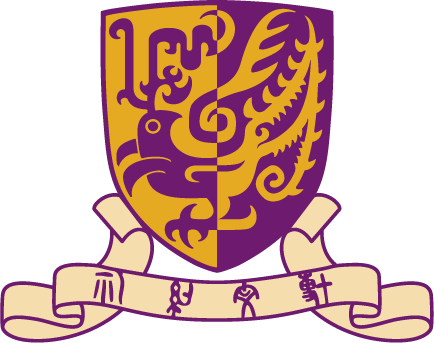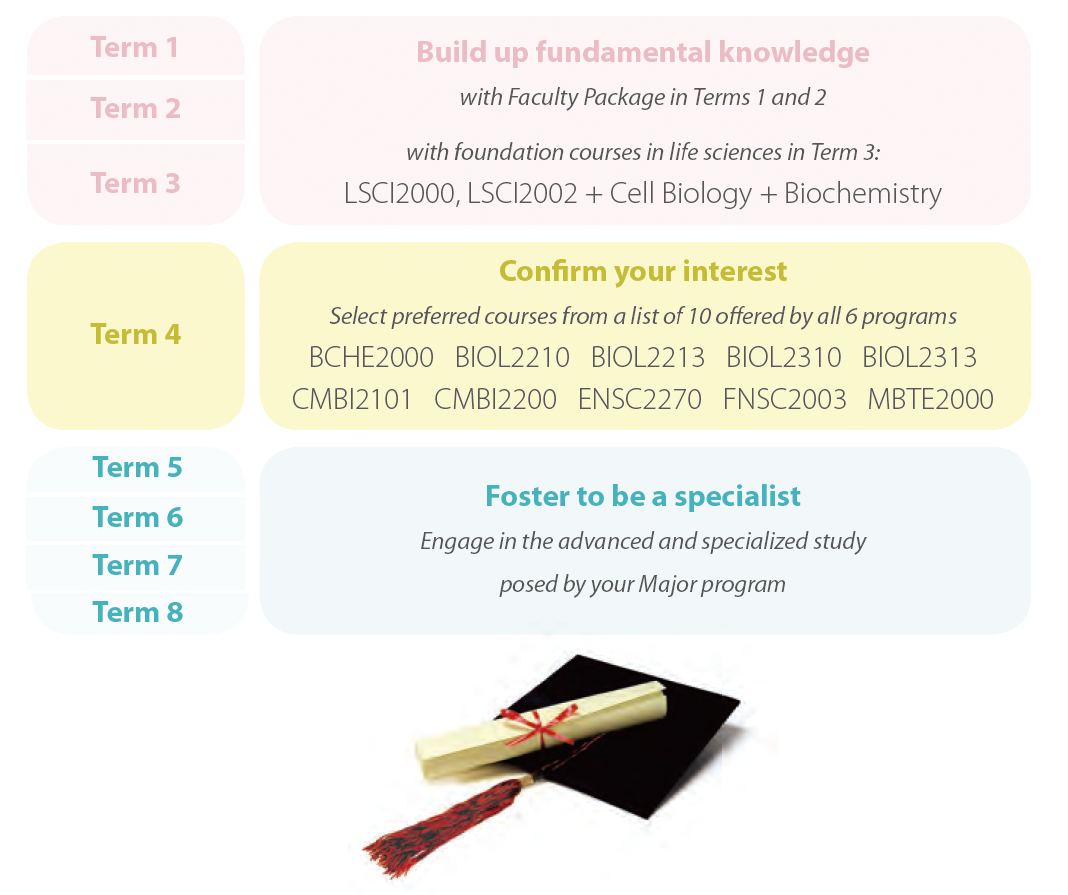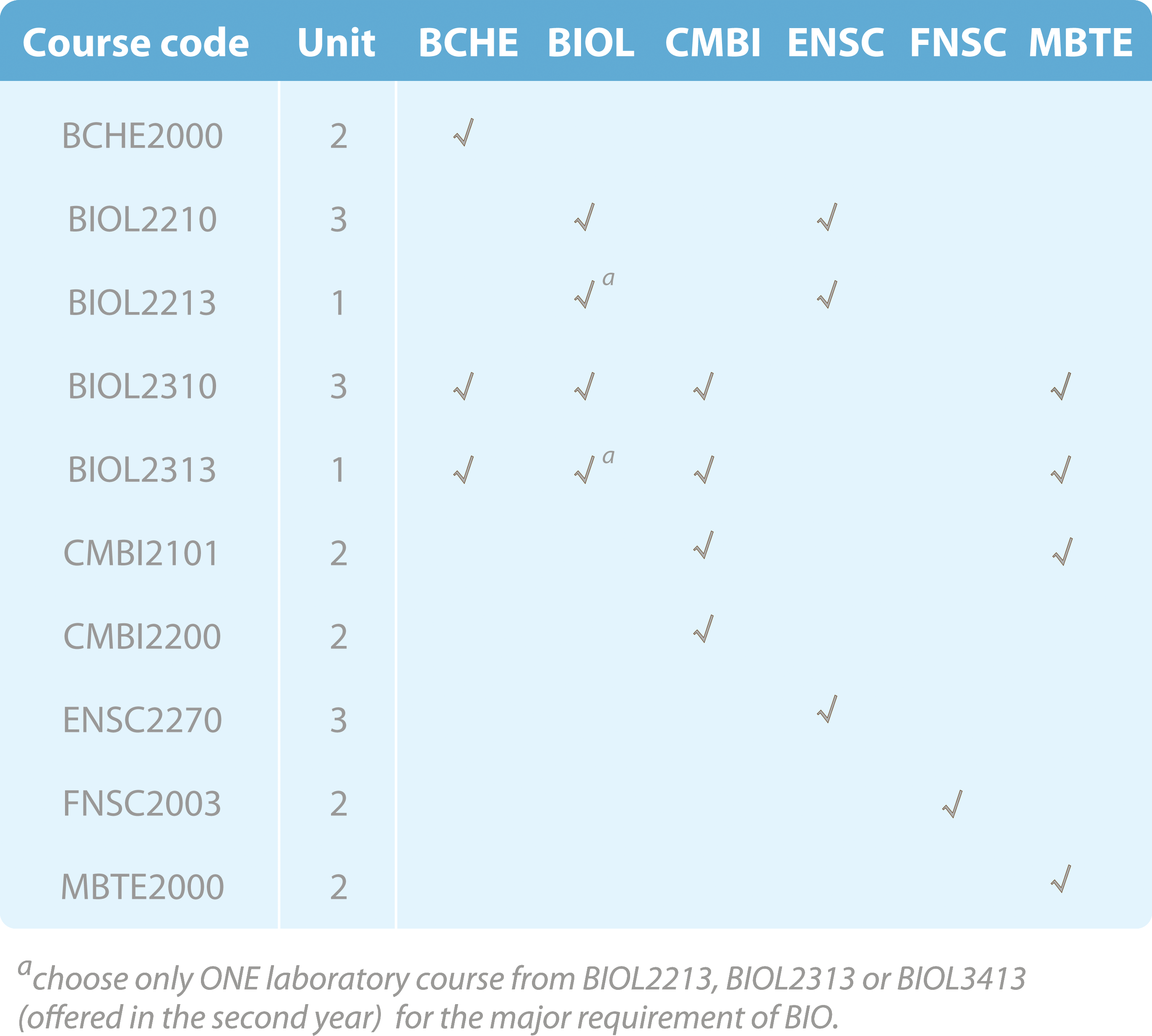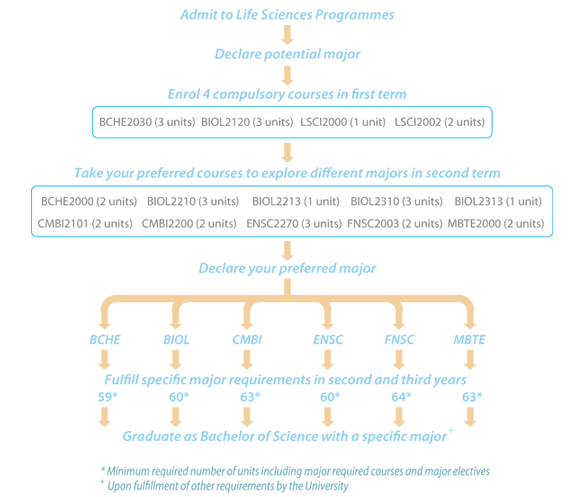|
2012 entrants: |
|||||||||||||
As of 2010 entrants:
The diversity of our intake includes School Principal's nomination, International schools, subdegree holders, etc. |
As of Admission in 2009
|
||||||||||||
|
|
|||||||||||||

| Research Postgraduate Programmes The School of Life Sciences offers research postgraduate programmes in six different disciplines, which provide advanced training for students to pursue teaching and research careers in life sciences, health and related fields of study.The following MPhil-PhD programmes are offered: MPhil-PhD in Biochemistry MPhil-PhD in Biology MPhil-PhD in Cell and Molecular Biology MPhil-PhD in Environmental Science MPhil-PhD in Food and Nutritional Sciences MPhil-PhD in Molecular Biotechnology Application: The application details are available on the University’s Graduate School website. ________________________________________________________________________________ |
|
Taught Postgraduate Programmes
|
|
|
| Starting from 2012, intake entrants from the new 3-3-4 curricular system are required to study at the university for 4 years. Upon admission, the students who wish to opt Biochemistry, Biology, Cell & Molecular Biology, Environmental Science, Food & Nutritional Sciences, and Molecular Biotechnology as their majors first enroll in the Faculty of Science. The early phase which takes place in the first three terms of the undergraduate study emphasizes on the basic knowledge in general science, and it includes the recommended Faculty Package for the first year of study and 4 compulsory courses for the first term of the second year of study. The Faculty Package requires an introductory course on life science and also courses in chemistry and a choice of physics, mathematics or statistics. This secures a wide exposure to related disciplines. Indeed, this Faculty Package is mostly common among students in different majors under the Faculty of Science. The 4 compulsory courses focus on the fundamentals of biochemistry and biology, which well serve as the solid foundations for subsequent specialized major studies in life science.
The second phase of the undergraduate study helps to understand in more details of the 6 major programmes offered by the School of Life Sciences. In the second term of the second year, students can choose classes from 10 different courses offered by our programmes. To avoid possible overloading, students are recommended not to take more than 13 units of major courses. Nonetheless, this limitation can already accommodate the requirements of up to 3 majors to acquire their preliminary savors. Through this flexible course-selecting scheme, students can comprehend their specific interests in the diverse fields in life sciences and formulate their best fitting choice for the majors. |
| Links of Course information: 1. Science Faculty Package 2. Browse Major Programme Requirement 3. Browse Course Catalogue |
| General Study Scheme for entrants from 3-3-4 curricular system |
|
|
|
|
|
|
|
|
|
In the first term of study, students enroll 4 compulsory courses in fundamental biochemistry and biology, which serve as the foundations for subsequent specialized studies in life sciences. Then, in the second term, the study focuses on the exploration of the different majors of interest. Students can enrol classes from 10 different courses offered by the six majors under the Life Sciences Programmes, i.e. Biochemistry (BCHE), Biology (BIOL), Cell and Molecular Biology (CMBI), Environmental Science (ENSC), Food and Nutritional Sciences (FNSC), and Molecular Biotechnology (MBTE). To avoid overloading, students are recommended not to take more than 13 units of major courses. Nonetheless, this limitation can already accommodate the requirements of up to 3 majors to acquire their preliminary savours. Through this flexible course-selecting scheme, students can comprehend their specific interests in the diverse fields in life sciences and formulate their best fitting choice for the major. The declaration of major is finally submitted subsequent to the completion of the second term. Thereafter, students are enlisted in their selected major, and follow the study requirement posed by the specific major. |
|
|
|
|
| Curriculum Forum (2018) |
|
| Counseling Session (2018) |
|
| LSC Timetable (2017-18) |
|
Additional Information: i. School Overview; ii. Our Six Programmes
|
|










